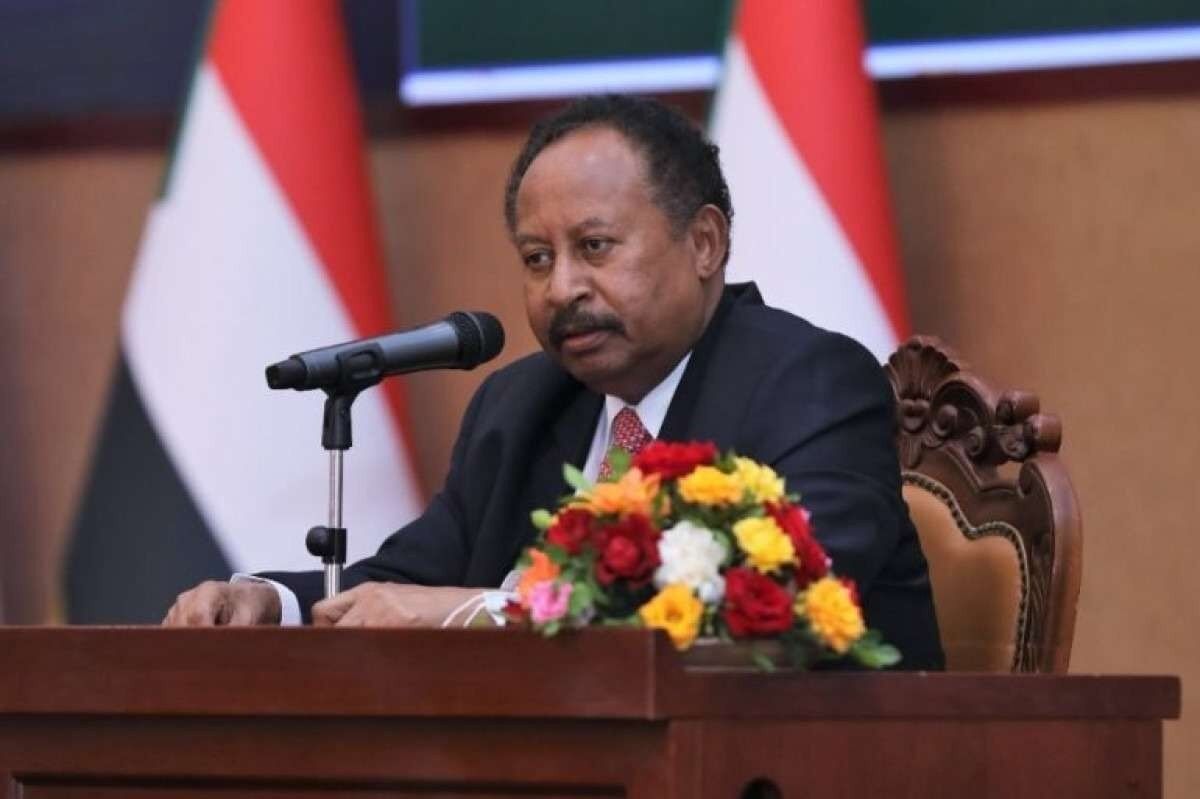At the crossroads
The political vacuum in Sudan, created by resignation of the PM, could imperil the newfound democracy if immediate international intervention is not made

The resignation of Sudan's Prime Minister Abdalla Hamdok, just six weeks after he was reinstated, leaves a dangerous political vacuum, as civilian and military forces vie for control of power.
Hamdok was overthrown in a military coup last October from the PM post during Sudan's fragile transition to civilian rule. He was reinstated a month later on November 21 under a deal signed with military leader General Abdel Fattah al-Burhan, after weeks of house arrest and mass protests against the military action.
Pro-democracy protesters rejected the deal and tens of thousands took to the streets to denounce the military's tightening grip on power.
Announcing his resignation in a televised address on Sunday, Hamdok said: "I tried my best to stop the country from sliding towards disaster" and cited "fragmentation of the political forces and conflicts between the (military and civilian) components of the transition".
"Despite everything that has been done to reach a consensus…it has not happened," the technocrat-turned politician said.
Hamdok emerged as Sudan's civilian leader after a wave of unprecedented youth-led protests that brought down the long-time dictator Oman al-Bashir who was arrested by the military in April 2019. His appointment as the head of the transitional government was welcomed by much of the population and the international community. It was seen as a historic chance for a return to civilian rule and democracy in Sudan.
After assuming the office in 2019, he had said his priorities included solving the economic crisis, addressing the public debt burden and achieving peace in a country that has been long fractured by civil wars.
He began negotiating with the International Monetary Fund and the World Bank on restructuring Sudan's debt. He also engaged in talks with the US to have Sudan removed from its list of 'state sponsors of terrorism' — a designation that had isolated Sudan from the international financial system since 1993. Sudan was removed from the list in 2020.
Sudan was also incorporated by the IMF into the Highly Indebted Poor Countries (HIPC) initiative, based on the country's commitment to micro-economic reforms — putting it on the path to obtain relief of more than USD 56 billion in debt and access to new funds.
He also initiated several economic reforms including removal of fuel subsidies which cost the country several billion dollars a year as well as led to devaluation and floating of the currency. He tried to bring firms owned by security forces under the government control.
Tension began mounting between the army and the civilian factions in the power-sharing administration in September, resulting in his removal on October 25 by the military.
However, his stance on various issues concerning the people won him support among the population. Protestors carried his photos and hung banners featuring him from billboards during rallies against the coup.
After being reinstated as the prime minister in November under a 14-point power deal he signed with al-Burhan, a move opposed by many protestors and political personalities who had previously supported him, Hamdok said he had done so to halt bloodshed after several dozen civilians were killed during demonstrations.
The main civilian faction in coalition, Forces of Freedom and Change (FFC), which had earlier been part of the transitional government, refused to recognise the agreement.
Sizeable number of anti-military demonstrators saw Hamdok's decision as just another version of military rule and, as a result, he seems to have lost popular support.
Even before his resignation, the international community viewed the situation to be unrealistic and imperfect due to divergent positions of the military and civilian elements.
Following his resignation, there are calls for reinstallation of the Constitutional agreement and appointment of an international mediator who could find political compromise leading to installation of a civilian government.
Sudan is at the crossroads and is going through a dangerous turning point that could threaten its survival unless it is urgently rectified. The country needs to engage in a new dialogue to agree on a national charter and draw a roadmap to complete the transition to civilian rule as the continued political deadlock could become an existential crisis for it.
The international community needs to redouble its efforts in order to dissuade the military from capitalising on Hamdok's exit to complete their coup.
There is an urgent need for a prime minister and a government of technocrats free from military influence as well as with an understanding with the anti-military protesters that meets their demands.
The writer is a former Editor of PTI and served as the West Asia correspondent for the same. Views expressed are personal



